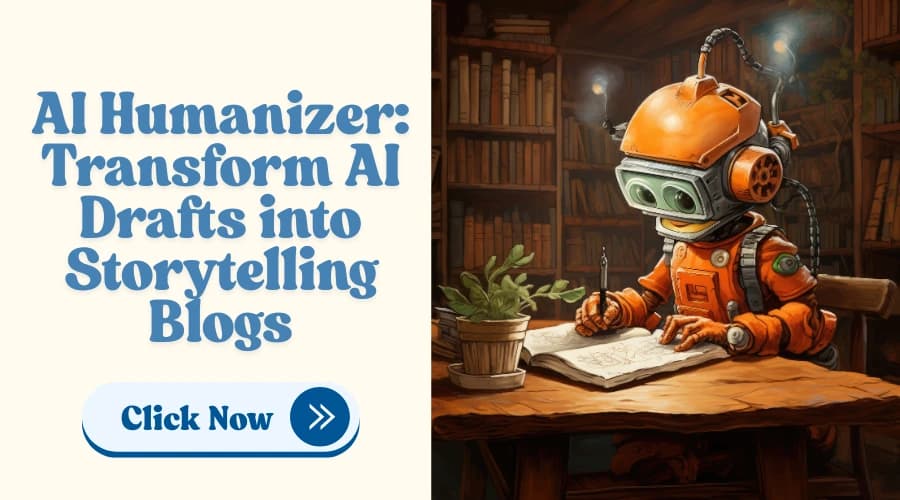By 2024, academic pressures will be higher than ever, with tight deadlines and overwhelming assignments. Nowadays, students turn to AI tools for instant solutions to their problems. According to data derived from an EdTech Magazine survey, 68% of students used AI tools for homework or assignments in 2024. While using AI may offer the ability to enable speed and efficiency, it does not go beyond that and doesn't offer the required emotional intelligence and original input instructors expect from students. The Journal of Higher Education found that 56% of students acknowledge AI's limitations and see it as helpful only for drafts, not final submissions.
Many students feel AI saves time but lacks depth. However, failing to include real-life or academic references can lead to a drop in grades or being flagged by AI detectors.
What Gets Lost When AI Takes Over
AI can create content that lacks the depth and personal connection that make academic writing stand out. Students are left with a dull paper that doesn't reflect their true beliefs. Research at The Chronicle of Higher Education found that in 2024, approximately 74% of the teachers were able to identify AI-generated content because they could not relate to any emotional aspect.
“It’s like reading a well-formatted answer from a robot, technically accurate, but completely soulless,” said one English professor from the report.
The AI system fails to grasp the subtleties of the field's tone and the situational element, which are core factors when writing essays, SOPs, and project reports. Furthermore, the Global AI Trends Report 2024 shows that about 60% of the professors mentioned that AI-generated content lacks the complexity that comes from a student’s own effort.
Understanding the Human Element in Academic Writing
Students are required to do much more than simply meet their assignment criteria when writing academic papers. The professors want to see original thought, authenticity, and clarity. Also, your voice matters, it is a reflection of your perspective, not just knowledge. In 2024, a university affairs has discovered that 82% of teachers value insight and effort more important than technical perfection. For essays and personal statements, including your personal experiences and clear insights, makes the work memorable. AI can’t replicate this level of depth or authenticity, and that’s why your input is indispensable.
Signs Your Work Sounds Too Robotic
Confused about how AI-generated content lacks a personal touch? Here are a few signs:
- Too formal or stiff tone: AI may come off as too robotic, making the work sound too unnatural.
- Repetitive phrases: AI uses repetitive patterns, writing the same phrases over and over again.
- Vagueness: AI may make content that is too monotonous, lacks examples, or depth.
Did you know?
The reason that 68% of AI-generated content was flagged was due to its mechanical, formulaic, and lacking emotional connection. If you also find these kinds of traits in your writing, then it’s time for you to use AI Humanizer Pro.
What is the best practice when using AI?
- Use AI for structure and inspiration, not full drafts - AI can be useful to generate the structure of a certain paper or generate ideas; however, it is not the best way to write a complete assignment. In 2024, 62% of students with AI primarily used AI for their work structuring, revealed by the EdTech Insights report. The key is to utilize AI for getting the core of thoughts and putting these into words while constructing the paper.
- Edit with your voice in mind - After getting a draft from AI, it's your turn to refine it. The task is to ensure that the content is in your words, introducing personal examples, anecdotes, and phrases that are both thought-provoking and original, reflecting your perspective. The study documented by AI Writer's Guide in 2024, students who added their own touch to AI drafts scored 30% higher for originality.
- Humanize before submission - Before submitting your work, consider using a tool like AI Humanizer Pro to smooth out robotic language and ensure the content sounds natural. 72% of the students who had applied humanization tools claimed better grades because the text had become more readable and smoother flow.
- Review for flow and clarity - Always take the time to review your work. Going through the document or having another student give you feedback can be beneficial to spot the awkward places. Approx. 58% of students who read their final drafts out loud and asked feedback from their peers made their writing more readable and improved the flow of the text.
- Balance tech with integrity - While AI can assist, maintaining academic integrity is crucial. In 2024, 43% of students believed responsible use of AI helps them stay honest and original. Your professors value your understanding of the material more than perfection, so make sure to balance the efficiency of AI with your own effort and originality.
Always ask yourself before submitting: “What part of this essay could only have been written by me?” If the answer is “none,” you may need another revision round.
How AI Humanizer Helps Students Get the Best of Both Worlds
If you wonder, How do I give a human touch to AI content? AI Humanizer is a powerful tool that helps students refine AI-generated content while preserving its original meaning and intent. Instead of replacing your effort, it enhances it to sound natural and engaging. 72% of students using AI Humanizer noticed that it not only enabled them to write better but also reduced AI detection threats. It is expected that humanizing AI will be adopted by 55% of students in 2025 as the main source of preparing their content before submission.
Oleg, a law student from San Andreas, used AI to draft a case analysis but struggled with robotic tone. After running it through humanizing AI and adding personal critiques from his mock trials, his work became more relatable and scored 18% higher than his previous submission.
Conclusion: Don’t just use AI, use it wisely
AI tools are invaluable for improving efficiency, but they should complement your own effort, not replace it. TechSavvy Students 2024 reports that 79% of students who used AI tools responsibly and personalized their work achieved higher grades. Combining AI’s speed with human authenticity is the key to academic success.
Ready to enhance your academic writing? Try AI Humanizer today to ensure your work sounds natural, authentic, and polished. Whether it’s essays, personal statements, or research reports, AI Humanizer Pro is the tool you need to make your work shine.
FAQs: What Students Are Asking
Q: Can I use AI to write my entire essay?
A: You can, but it’s risky. Most universities now use AI-detection tools. Plus, you miss out on developing critical thinking skills. Use AI as a guide, not a ghostwriter.
Q: What’s the safest way to use AI?
A: Use it for structure, ideation, and grammar checks. Then rewrite, add personal input, and run it through a humanization tool before submission.
Q: Will AI Humanizer help with detection?
A: Yes. Most AI detectors look for robotic structure, flat tone, and overused phrasing. Humanization tools restructure content to reflect natural speech patterns, reducing detection rates significantly.






